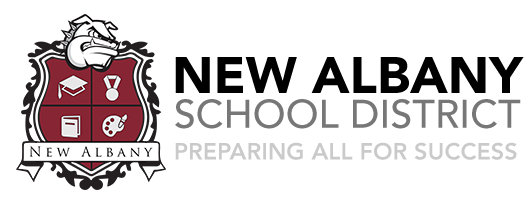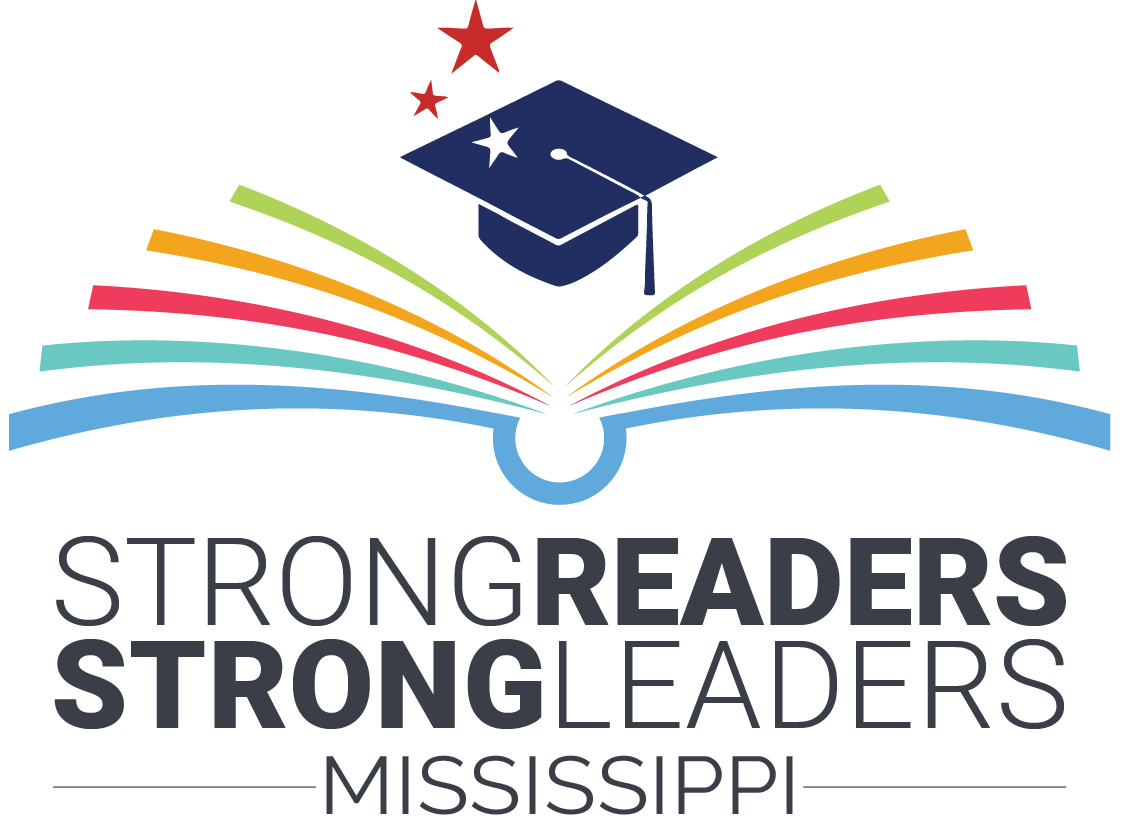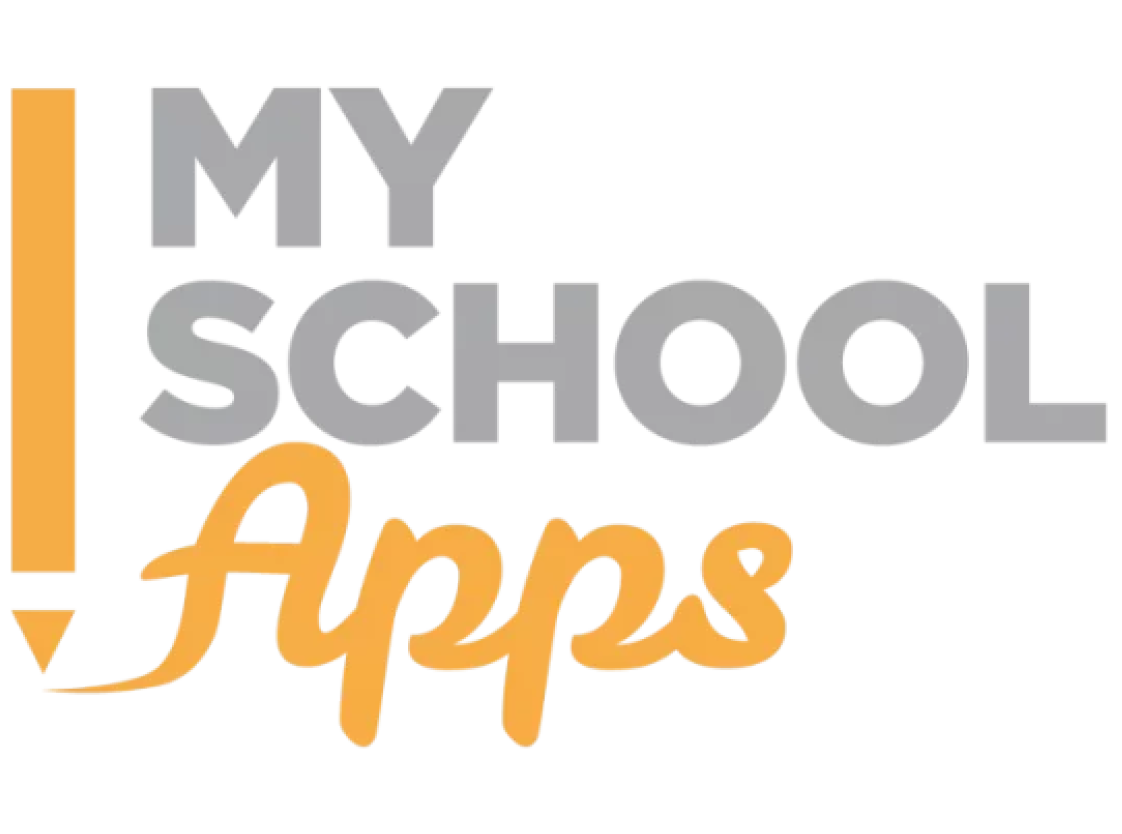Every Student Succeeds Act (ESSA) provides financial assistance through state education agencies (SEAs) to local education agencies (LEAs) and public schools with the highest percentages of children from low-income families to help ensure that all children meet challenging state academic standards. Public schools with poverty rates of at least 40 percent may use Title I funds, along with other federal, state, and local funds, to operate a schoolwide program to upgrade the entire educational program. The school designs, in consultation with parents, staff, and district staff, an instructional program to meet the needs of students. The programs must be based on effective means of improving student achievement and include strategies to support parent and family engagement.
The New Albany School District serves New Albany Elementary School through a Schoolwide Program. This means that Title I funds may be utilized to affect all students and faculty members. These funds are utilized primarily to provide salaries and benefits for instructional paraprofessionals and interventionists. Instructional supplies are also provided for classrooms.
New Albany School District Parent and Family Engagement Policy
New Albany Elementary School Parent & Family Engagement Plan
Parent-Student-Teacher Compact
The purpose of Title II, Part A is to increase student academic achievement consistent with the challenging state academic standards; improve the quality and effectiveness of teacher, principals, and other school leaders; increase the number of teachers, principals, and other school leaders who are effective in improving student academic achievement in schools; and provide low-income and minority students greater access to effective teachers, principals, and other school leaders. These funds are utilized to provide professional development for teachers, principals and other school leaders.
Title III grants are awarded to Local Educational Agencies (LEAs) to: help ensure that English Learners, including immigrant children and youth, attain English proficiency and develop high levels of academic achievement in English; assist all English Learners, including immigrant children and youth, to achieve at high levels in academic subjects so that all English Learners can meet the same challenging State academic standards that all children are expected to meet; assist teachers, principals and other school leaders, and LEAs to develop and enhance their capacity to provide effective instructional programs designed to prepare English Learners, including immigrant children and youth, to enter all-English instructional settings; and promote parental, family, and community participation in language instruction educational programs for the parents, families, and communities of English Learners. These funds partially pay salary and benefits for a paraprofessional to provide services for EL students.
The Student Support and Academic Enrichment (SSAE) program is used to improve student academic achievement by increasing the capacity of States, local educational agencies, schools, and local communities to: 1) provide all students with access to a well-rounded education; 2) improve school conditions for student learning; and 3) improve the use of technology to improve the academic achievement and digital literacy of all students. These funds are used at all three schools to purchase instructional supplies and or equipment that meet the allowable purchases guidelines.
The Rural Education Initiative is designed to address the unique needs of small, rural local education agencies (LEAs) that frequently lack the personnel and resources needed to compete effectively for Federal competitive grants and receive formula grant allocations under other programs in amounts too small to be effective in meeting their intended purposes. These funds are used to pay partial salary and benefits for two paraprofessionals at the elementary school.
New Albany School District McKinney-Vento Liaison
Lecia Stubblefield lstubblefield@nasd.ms 662-534-1800
All school districts are required to maintain compliance with the McKinney-Vento Act which provides specific rights for homeless students. Every school district must designate a McKinney-Vento Liaison to assist in identifying, supporting, and ensuring the rights of homeless students and families. These rights include waiving certain requirements, such as proof of residency, when students are enrolling and allowing categorical eligibility for certain services, such as free lunch. The Act also states:
- Students who are homeless may attend their school of origin or the school where they are temporarily residing.
- Parents or guardians of homeless students must be informed of educational and related opportunities.
- Students who are homeless may enroll without school, medical, or similar records.
- Students who are homeless and their families receive referrals to health, dental, mental health, substance abuse, housing, and other needed services.
- Students who are homeless have a right to transportation to school.
- Students must be provided a statement explaining why they are denied any service or enrollment.
- Students must be enrolled in school and receive services, such as transportation, while disputes are being settled.
- Students are automatically eligible for Title I services.
- School districts must reserve a portion of Title IA funds to serve homeless students.
- School districts must review and revise policies that serve as barriers to homeless students.
- Schools must post information in the community regarding the rights of homeless students and unaccompanied youth in schools and other places where homeless families may frequent and written in a language they can understand.
- School districts must identify a McKinney-Vento Liaison
General Links
Student Handbook
Excel By 5 Resource Guide
Title I Links
Annual Notice of Student Education Record Privacy
Parent Opt-Out Student Directory Letter
Parent Opt-Out Military Form
Parent-Student-Teacher Compact
New Albany School District Parent and Family Engagement Policy
New Albany Elementary School Parent & Family Engagement Plan
To protect against waste, fraud, and abuse of district and federal funds, please report suspected waste, fraud, or abuse to the Superintendent, Business Manager, or Federal Programs Director at 662-534-1800 or by emailing wastefraudabuse@nasd.ms.
Title III Links (English Learners)
English Learner Guidelines
New Albany School District English Learner Plan
Title IX Links (McKinney-Vento Homeless)
Homeless Liaison
Lecia Stubblefield
lstubblefield@nasd.ms
662-534-1800
General Links
Student Handbook
Classified Employee Handbook
Certified Teacher Handbook
Excel By 5 Resource Guide
Title I Links
Annual Notice of Student Education Record Privacy
Parent Opt-Out Student Directory Letter
Parent Opt-Out Military Form
Parent-Student-Teacher Compact
New Albany School District Parent and Family Engagement Policy
New Albany Elementary School Parent and Family Engagement Plan
Form Federal Programs. Goods Requisition
Form Procurement Packet Checklist Goods
To protect against waste, fraud, and abuse of district and federal funds, please report suspected waste, fraud, or abuse to the Superintendent, Business Manager, or Federal Programs Director at 662-534-1800 or by emailing wastefraudabuse@nasd.ms.
Title II Links (Professional Development)
Title II Travel Requisition Form
NASD Federal Programs Procurement Packet Checklist (Travel)
Travel Reimbursement Form
Title III Links (English Learners)
English Learner Guidelines
English Learner Guide for Administrators and Teachers
New Albany School District English Learner Plan
Title IX Links (McKinney-Vento Homeless)
Homeless Liaison, Lecia Stubblefield lstubblefield@nasd.ms | 662-534-1800
NASD Homeless Handbook
McKinney-Vento Homeless Flowchart
GENERAL Family Educational Rights and Privacy Act (FERPA)is a Federal law that protects the privacy of student education records. The law applies to all schools that receive funds under an applicable program of the U.S. Department of Education. FERPA gives parents certain rights with respect to their children’s education records. These rights transfer to the student when he or she reaches the age of 18 or attends a school beyond the high school level. Students to whom the rights have transferred are “eligible students.” • Parents or eligible students have the right to inspect and review the student’s education records maintained by the school. Schools are not required to provide copies of records unless, for reasons such as great distance, it is impossible for parents or eligible students to review the records. Schools may charge a fee for copies. • Parents or eligible students have the right to request that a school correct records which they believe to be inaccurate or misleading. If the school decides not to amend the record, the parent or eligible student then has the right to a formal hearing. After the hearing, if the school still decides not to amend the record, the parent or eligible student has the right to place a statement with the record setting forth his or her view about the contested information. • Generally, schools must have written permission from the parent or eligible student in order to release any information from a student’s education record. However, FERPA allows schools to disclose those records, without consent, to the following parties or under the following conditions (34 CFR § 99.31): School officials with legitimate educational interest; Other schools to which a student is transferring; Specified officials for audit or evaluation purposes; Appropriate parties in connection with financial aid to a student; Organizations conducting certain studies for or on behalf of the school; Accrediting organizations; To comply with a judicial order or lawfully issued subpoena; Appropriate officials in cases of health and safety emergencies; and State and local authorities, within a juvenile justice system, pursuant to specific State law. Schools may disclose, without consent, “directory” information such as a student’s name, address, telephone number, date and place of birth, honors and awards, and dates of attendance. However, schools must tell parents and eligible students about directory information and allow parents and eligible students a reasonable amount of time to request that the school not disclose directory information about them. Schools must notify parents and eligible students annually of their rights under FERPA. The actual means of notification (special letter, inclusion in a PTA bulletin, student handbook, or newspaper article) is left to the discretion of each school. For additional information, you may call 1-800-USA-LEARN (1-800-872-5327) (voice). Individuals who use TDD may call 1- 800-437-0833. O
FERPA Informational Video and Information
Family Education Rights and Privacy Act (FERPA) Policy
Annual Notice of Student Education Record Privacy
Parental Request to Opt-Out of School Directory (Military Recruiter)
Parent Opt-Out for Student Directory
The purpose of Title II, Part A is to increase student academic achievement consistent with the challenging state academic standards; improve the quality and effectiveness of teacher, principals, and other school leaders; increase the number of teachers,
New Albany School District Point of Contact
Lecia Stubblefield lstubblefield@nasd.ms 662-534-1800
LEGISLATION AND GUIDANCE
The Every Student Succeeds Act (ESSA) was signed into law on December 10, 2015, amending the Elementary and Secondary Education Act. For the first time, the Every Student Succeeds Act embeds federal education law requirements that emphasize school stability and success for youth in foster care.
The Every Student Succeeds Act emphasizes the importance of limiting educational disruption of children placed in foster care who move due to entering care or changing placements by mandating the the child remain in their schools or origin unless it is determined by the LEA and state child welfare agency that changing schools is in the child’s best interest.
If you have any questions or need information concerning this information, please feel free to contact Lecia Stubblefield at lstubblefield@nasd.ms or 662-534-1800.
Director: Lecia Stubblefield | lstubblefield@nasd.ms | 662-534-1800


